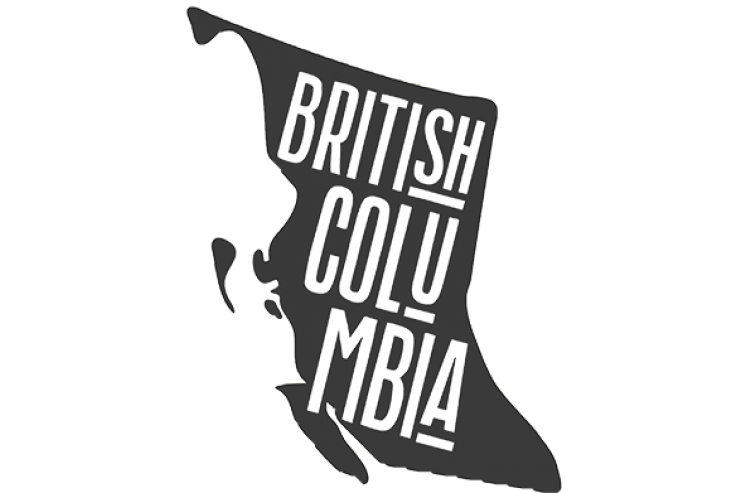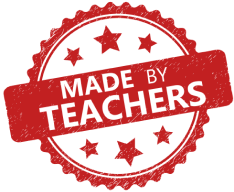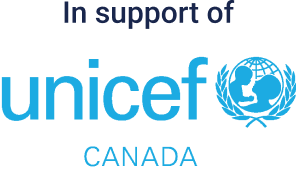British Columbia Grade 9

CLICK HERE FOR CURRICULUM CONNECTIONS, LESSONS AND SUPPORT RESOURCES.
Made by a Grade 9 teacher in British Columbia.
Kids Boost Immunity (KBI) provides educational content (lessons and support materials) developed by teachers and where needed, health experts, that is directly linked to curriculum and is available completely for free. Each lesson is paired with an online quiz that students can take on a laptop, tablet, or phone. Every time a student scores 80% or higher on a quiz, we donate life-saving vaccines to UNICEF Canada. To learn more about KBI, click here.
Click on the overarching curriculum themes below to see the curriculum outcomes that match KBI educational content. The full Grade 9 British Columbia Curriculum Connections document is here.
- Physical and Health Education
-
Curricular outcomes:
Physical and Health Education - Content
- Sources of health information
Big Idea - Healthy choices influence our physical, emotional, and mental well-being.
PHE - Curricular Competency
- Healthy and active living
- Identify factors that influence health messages from a variety of sources, and analyze their influence on behaviour
- Identify and apply strategies to pursue personal healthy-living goals
- Propose strategies for avoiding and/or responding to potentially unsafe, abusive, or exploitive situations
Social and community health
- Reflect on outcomes of personal healthy-living goals and assess strategies used
- Create strategies for promoting the health and well-being of the school and community
Mental well-being
- Analyze strategies for promoting mental well-being, for self and others
Content
- Potential short- and long-term consequences of health decisions, including those involving nutrition, protection from sexually transmitted infections, and sleep routines
Applicable KBI lessons:
1. Critical Thinking & Evaluating Information
- Literacy builder worksheet/answer guide
- Lesson worksheet/answers
- Video worksheet/answers
- Inquiry activities/answer guides
- Numeracy activity/answers
2. Navigating the World of Online (Mis)Information
- Inquiry activities
3. How to Handle Your Vaccines Like a Champ
This lesson was developed by nursing professionals in consultation with teachers to provide evidence on the benefits of the vaccine being offered to protect against a disease(s) and to help students feel less anxious during the school vaccination clinic.
- Science
-
Curricular outcomes:
Science - Big Idea
- The biosphere, geosphere, hydrosphere, and atmosphere are interconnected, as matter cycles and energy flows through them.
Science - Content
- Matter cycles within biotic and abiotic components of ecosystems
- human impacts on sources and sinks
- e.g., climate change, deforestation, agriculture, etc.
- bioaccumulation and biomagnification within biotic and abiotic components of ecosystems
- sustainability of systems
- a systems approach to sustainability sees all matter and energy as interconnected and existing in dynamic equilibrium
- e.g., carbon as a key factor in climate change, greenhouse effect, water cycle, etc.
Science - Curricular Competency
- Planning and conducting
- Collaboratively and individually plan, select, and use appropriate investigation methods, including field work and lab experiments, to collect reliable data (qualitative and quantitative)
- Processing and analyzing data and information
- Seek and analyze patterns, trends, and connections in data, including describing relationships between variables (dependent and independent) and identifying inconsistencies
- Use knowledge of scientific concepts to draw conclusions that are consistent with evidence
- Analyze cause-and-effect relationships
- Evaluating
- Demonstrate an awareness of assumptions, question information given, and identify bias in their own work and secondary sources
- Exercise a healthy, informed skepticism, and use scientific knowledge and findings to form their own investigations and to evaluate claims in secondary sources
- Critically analyze the validity of information in secondary sources and evaluate the approaches used to solve problems
Applicable KBI lessons:
1. Environment & Climate Change
- Literacy builder worksheet/answer guide
- Lesson worksheet/answers
- Video worksheet/answers
- Inquiry activities/answer guides
- Numeracy activity/answers
2. Critical Thinking & Evaluating Information
- Literacy builder worksheet/answer guide
- Lesson worksheet/answers
- Video worksheet/answers
- Inquiry activities/answer guides
- Numeracy activity/answers
- Social Studies
-
Curricular outcomes:
Social Studies - Content
- The continuing effects of imperialism and colonialism on indigenous peoples in Canada and around the world
- Sample topics:
- impact of treaties on First Peoples (e.g., numbered treaties, Vancouver Island treaties)
- impact of the Indian Act, including reservations and the residential school system
- interactions between Europeans and First Peoples
- Key questions:
- What were the motivations for imperialism and colonialism during this period?
- What role does imperialism and colonialism from this period have on events in present-day Canada and around the world?
- Discriminatory policies, attitudes, and historical wrongs
- Sample topics:
- discriminatory policies toward First Peoples, such as the Indian Act, potlatch ban, residential schools
- social history
- gender issues
- responses to discrimination in Canada
Social Studies - Curricular Competency
- Assess the significance of people, places, events, or developments, and compare varying perspectives on their historical significance at particular times and places, and from group to group (significance)
- Explain and infer different perspectives on past or present people, places, issues, or events by considering prevailing norms, values, worldviews, and beliefs
- Make reasoned ethical judgments about actions in the past and present, and determine appropriate ways to remember and respond
Applicable KBI lessons:
1. Life on Turtle Island
Curriculum-Related Themes Throughout the Year
- Remembrance/Veterans/Memorial Day (November)
-
Applicable KBI lessons:
1. Remembrance Day / Veterans Day / Armistice Day
- Reflecting on leadership and the skills needed to help make a difference for ourselves and others (December)
-
Curricular outcomes:
Core Competency - Personal and Social
- Social Awareness and Responsibility
- People who are socially aware and responsible contribute to the well-being of their social and physical environments
Physical and Health Education - Big Ideas
- We experience many changes in our lives that influence how we see ourselves and others.
English Language Arts - Big Ideas
- Exploring stories and other texts helps us understand ourselves and make connections to others and to the world
Applicable KBI lessons:
1. Christmas in No Man’s Land - Reflecting on Kindness
- Inquiry/creative activities
- Social Awareness and Responsibility
- Highlighting some key inspirational leaders during Black History Month as well as some experiences of refugees from different parts of the world (February)
-
Curricular outcomes:
English Language Arts - Big Ideas
- Exploring stories and other texts helps us understand ourselves and make connections to others and to the world
English Language Arts - Curriculum Competency
- Comprehend and connect (reading, listening, viewing)
- Think critically, creatively, and reflectively to explore ideas within, between, and beyond texts
- Recognize and identify the role of personal, social, and cultural contexts, values, and perspectives in texts
Physical and Health Education - Big Ideas
- Advocating for the health and well-being of others connects us to our community
PHE - Curricular Competency
- Social and community health
- Propose strategies for responding to discrimination, stereotyping, and bullying
PHE - Content
- Consequences of bullying, stereotyping, and discrimination
Core Competencies - Personal and Social
- Valuing Diversity
- Students value diversity, defend human rights, advocate for issues, and interact ethically with others. They are inclusive in their language and behaviour and recognize that everyone has something to contribute. Their approach to inclusive relationships exemplifies commitment to developing positive communities.
Applicable KBI lessons:
1. Black History Month
2. Refugee Experiences
- Lesson worksheet/answers
- Inquiry activities
- Celebrating inspiring women in STEM (March)
-
Curricular outcomes:
Core Competencies - Personal and Social
- Valuing Diversity
- Students value diversity, defend human rights, advocate for issues, and interact ethically with others. They are inclusive in their language and behaviour and recognize that everyone has something to contribute. Their approach to inclusive relationships exemplifies commitment to developing positive communities.
English Language Arts - Big Ideas
- Exploring stories and other texts helps us understand ourselves and make connections to others and to the world
English Language Arts - Curriculum Competency
- Comprehend and connect (reading, listening, viewing)
- Think critically, creatively, and reflectively to explore ideas within, between, and beyond texts
- Recognize and identify the role of personal, social, and cultural contexts, values, and perspectives in texts
Applicable KBI lessons:
1. International Women's Day - Celebrating Inspiring Women in STEM
- Literacy builder worksheets/answer guides
- Numeracy activity
- Inquiry activities
- Valuing Diversity
- Understanding communicable diseases and how they are spread, and learning about immunization. Suggested during flu season, immunization awareness week, and school vaccinations (if applicable)
-
Curricular outcomes:
Physical and Health Education - Content
- Practices that reduce the risk of contracting sexually transmitted infections and life-threatening communicable diseases
- Sources of health information
Big Idea - Healthy choices influence our physical, emotional, and mental well-being.
Social and community health
- Create strategies for promoting the health and well-being of the school and community
Mental well-being
- Analyze strategies for promoting mental well-being, for self and others
Content
- Potential short- and long-term consequences of health decisions, including those involving nutrition, protection from sexually transmitted infections, and sleep routines
Applicable KBI lessons:
1. Immunization Awareness Week
2. The Spread of Infectious Diseases
3. Scientific Curiosity and Vaccine Discoveries
- Literacy builder worksheets/answer guides
- Inquiry activities
4. How to Handle Your Vaccines Like a Champ
This lesson was developed by nursing professionals in consultation with teachers to provide evidence on the benefits of the vaccine being offered to protect against a disease(s) and to help students feel less anxious during the school vaccination clinic.
- Indigenous History in Canada- Truth and Reconciliation (June)
-
Applicable KBI lessons:
1. Life on Turtle Island




